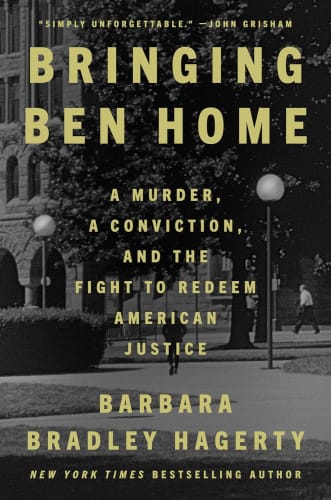
Bringing Ben Home
A Murder, a Conviction, and the Fight to Redeem American Justice
How states are making their legal systems more equitable, seen through the story of a Black man falsely imprisoned for thirty years for murder. In 1987, Ben Spencer, a twenty-two-year-old Black man from Dallas, was convicted of murdering white businessman Jeffrey Young—a crime he didn’t commit. From the day of his arrest, Spencer insisted that it was “an awful mistake.” The Texas legal system didn’t see it that way. It allowed shoddy police work, paid witnesses, and prosecutorial misconduct to convict Spencer of murder, and it ignored later efforts to correct this error. The state’s bureaucratic intransigence caused Spencer to spend more than half his life in prison. Eventually independent investigators, new witness testimony, the foreman of the jury that convicted him, and a new Dallas DA convinced a Texas judge that Spencer had nothing to do with the killing, and in 2021 he was released from prison. As Spencer’s fight to clear himself demonstrates, our legal systems are broken: expedience is more important than the truth. That is starting to change as states across the country implement new efforts to reduce wrongful convictions, and one of the states leading the way is Texas. Award-winning journalist Barbara Bradley Hagerty has spent years digging into this issue, and she has immersed herself in Spencer’s case. She has combed police files and court records, interviewed dozens of witnesses, and had extensive conversations with Spencer, and in Bringing Ben Home she threads together two narratives: how an innocent Black man got caught up in and couldn’t escape a legal system that refused to admit its mistakes; and what Texas and other states are doing to address wrongful convictions to make the legal process more equitable for everyone. By turns fascinating and enraging, personal and provocative, Bringing Ben Home is the powerful story of one innocent man who refused to admit that he was guilty of murder, and how his plight became part of a paradigm shift in how the legal system thinks about innocence as it institutes new methods to overturn wrongful convictions to better protect people like Ben Spencer.
Bringing Ben Home
A Murder, a Conviction, and the Fight to Redeem American Justice
